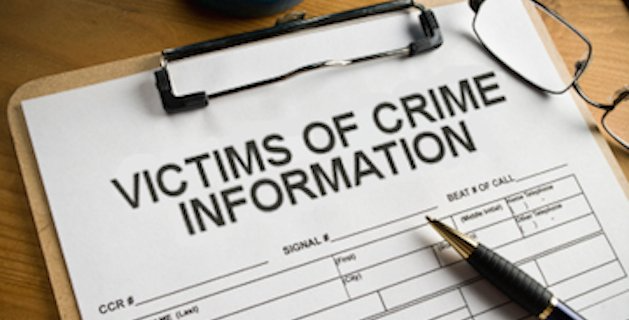If you are a U-1 Nonimmigrant visa recipient, do you know that you may still petition for and help certain family members obtain lawful status through your U visa approval?
Denice Flores • July 14, 2023
USCIS has a specific application that allows principal U-visa holders (U-1) to petition for family members, even after their U visa was approved. If this petition is approved, the family member can obtain lawful permanent resident (LPR) status in the United States.
Form I-929, Petition for Qualifying Family Member of a U-1 Nonimmigrant can be filed by a principal U visa recipient on behalf of certain family members. If you are the principal U-visa recipient and you are over the age of 21, you may file a petition for your spouse and unmarried children under the age of 21. If you are under the age of 21, you may file a petition for your spouse, unmarried children under the age of 21, and parents.
Here are some requirements that the U-1 nonimmigrant recipient must provide in the petition for his family member(s):
- The principal U visa recipient must either submit the petition, Form I-929, while he holds U-1 status and his adjustment of status application is pending before USCIS, or after his adjustment of status is approved. If his adjustment of status application is pending, he is required to provide a Receipt Notice of his pending application before USCIS. If he holds lawful permanent resident status as a victim of a crime, he should provide a copy of his green card (front and back).
- The principal U visa recipient must establish the relationship between him and his family member(s). For example, if petitioning for a spouse, provide the marriage certificate, and if petitioning for a child or parent, provide the birth certificates.
- The principal U visa recipient must prove that he or the family member will suffer extreme hardship if not allowed to remain in or to enter the U.S. Please note that extreme hardship is evaluated and determined on a case-by-case basis by USCIS. USCIS notes, “You must demonstrate that refusal to allow the family member to remain in or to enter the U.S. would result in a degree of hardship beyond that typically associated with such a removal or refusal.”
- The nature and extent of the physical or mental abuse suffered as a result of having been a victim of a crime;
- The impact of loss of access to the U.S. courts and criminal justice system;
- The likelihood that the perpetrator’s family, friends, or others acting on behalf of the perpetrator in the home country would harm the applicant or the applicant’s children;
- The applicant’s needs for social, medical, mental health, or other supportive services for victims of crimes that are unavailable or not accessible in the home country;
- If the crime was related to domestic violence, the existence of laws and social practices in the home country that punish the applicant or the applicant’s children because they have been victims of domestic violence or have taken the steps to leave an abusive household;
- The perpetrator’s ability to travel to the home country and ability and willingness of authorities in the home country to protect the applicant; and
- The age of the applicant, both at the time of entry and at the time of applying for adjustment of status.
- The principal U visa recipient must establish that discretion should be exercised by USCIS, in favor of the family member(s). USCIS suggests the petition include supporting documentation establishing mitigating equities for the family member(s).
Note, the filing fee to file Form I-929 is $230 and must be paid when submitting the petition with USCIS.
If you believe that you and your family member(s) may qualify for this immigration benefit or if you have any questions about the process, please schedule a consultation with one of our experienced attorneys right away and we will be more than happy to assist you.
This blog is not intended to be legal advice and nothing here should be construed as establishing an attorney client relationship. Please schedule a consultation with an immigration attorney before acting on any information read here.
Denice Flores
Similar Posts

Os imigrantes que solicitam um visto U depois de serem vítimas de um crime aqui nos Estados Unidos precisam esperar meses, às vezes anos, para que seu pedido seja processado e, com sorte, aprovado. Enquanto isso, esses candidatos não têm status e não podem obter autorização de trabalho. Esse fato tem impedido muitas pessoas de se apresentarem e auxiliarem os policiais em suas investigações, o que significa que cada vez mais crimes estão ficando sem solução. Felizmente, o USCIS reconheceu esse problema e, em 14 de junho de 2021, implementou uma nova política que mudará a questão da permissão para trabalhar!

In 2025, the immigration landscape continues to shift under the weight of national security concerns, ushered in by Executive Order “ Protecting the United States From Foreign Terrorists and Other National Security and Public Safety Threats. ” This directive tasks federal agencies—including the U.S. Department of State—with implementing enhanced screening and vetting protocols for all foreign nationals seeking visas or other immigration benefits. The result? A dramatically intensified vetting process, along with mounting concerns from immigrants, attorneys, and civil liberties advocates alike. Traditionally, airport security focused on verifying travel documents and screening for prohibited items, while consular officers assessed the legitimacy of visa petitions and the admissibility of applicants. Extreme vetting, however, represents a significant shift toward a far more invasive and comprehensive investigative process. It now includes detailed background checks, biometric verification, digital forensics, and expansive scrutiny of an applicant’s online presence and criminal or financial records. Since President Trump’s second term began in January 2025, the implementation of extreme vetting has expanded rapidly. Today, border screenings go far beyond routine document checks, encompassing a full-scale evaluation of a traveler’s digital life. This pivot reflects the administration’s intensified focus on national security, but it has also triggered urgent discussions about privacy, due process, and the fairness of modern immigration enforcement. At U.S. ports of entry—especially airports—noncitizens are now subject to rigorous and invasive procedures, including: Inspection of cell phones, laptops, and other devices (including deleted content) Review of social media activity on platforms like TikTok, Instagram, and X (formerly Twitter) Biometric scanning, including fingerprinting and facial recognition These measures are no longer confined to travelers from high-risk countries. In practice, extreme vetting applies broadly across all nationalities, and increasingly affects lawful permanent residents as well. For noncitizens, this new landscape introduces a heightened level of uncertainty and vulnerability. Delays at U.S. consulates for visa issuance or renewal are becoming routine. Travelers must now be acutely aware of these changes, and those attending consular interviews or seeking visa renewals should be prepared to provide additional documentation verifying their maintenance of status, compliance with visa conditions, and the bona fide nature of their visa applications. It is critical to organize supporting materials in advance and be ready to answer questions about employment, education, travel history, and online activity. As the U.S. government continues to expand its use of data-driven risk assessment tools, travelers must adapt to a new normal, one where preparation is essential to navigating the immigration system without disruption.

For international business owners and entrepreneurs engaged in cross-border trade with the United States , the opportunity to expand operations and establish a physical presence in the U.S. may be more accessible than expected. The E-1 Treaty Trader Visa is specifically designed to facilitate this type of business activity and offers a strategic pathway for qualifying individuals to live and work in the United States while managing or developing trade relationships. While 2025 has brought a trend of changes in immigration policy, the E-1 visa continues to stand out as a viable and welcoming option . Despite increased scrutiny across various immigration categories, this visa remains suitable for those involved in consistent, qualifying trade with the U.S. Its structure and purpose align well with current business realities, making it a stable choice even amid policy shifts. The E-1 visa is available to nationals of countries that maintain a treaty of commerce and navigation with the United States . To qualify, applicants must demonstrate that they are engaged in substantial trade—defined as a continuous flow of sizable international transactions—primarily between their home country and the U.S. Unlike investment-based visas, the E-1 visa does not require a fixed monetary threshold. Instead, it emphasizes active commercial exchange, such as the regular transfer of goods, services, or technology. This visa is applicable across a wide range of industries , including but not limited to manufacturing, logistics, professional services, consulting, finance, tourism, and technology. If more than 50% of your international trade is with the United States, and the business activity is consistent and well-documented, the E-1 visa may be a strong fit for your current business model. In addition to its flexibility, the E-1 visa is renewable as long as the trade activity continues. It also extends benefits to eligible family members: spouses and unmarried children under 21 may accompany the principal visa holder, and spouses are eligible to apply for U.S. work authorization, offering added support and financial opportunity for the family. This visa category is particularly well-suited for business professionals who are already operating in international markets and looking to formalize or expand their presence in the U.S. It rewards active engagement, proven commercial performance, and long-term trade partnerships. If you are currently engaged in trade with the United States and are considering expanding your business operations, the E-1 Treaty Trader Visa may provide a clear and effective route forward. Our attorneys at Santos Lloyd Law Firm are here to help you assess your qualifications and guide you through each stage of the process with clarity, strategy, and confidence.

All people living in the United States, regardless of immigration status, have certain U.S. constitutional rights. If Immigration and Customs Enforcement (ICE) officers come to your workplace, they must have either (1) a valid search warrant, or (2) consent from your employer to enter non-public areas. Non-public areas could include: staff break rooms, server rooms, mechanical rooms, HR department offices, private meeting rooms, etc. However, ICE can enter public areas of your workplace (lobby, reception area, parking lot etc.) without a warrant or consent from your employer. If you encounter ICE at your place of employment, it is important to stay calm . If an officer stops you, you may ask if you are free to leave. If they say yes, walk away calmly. If they say no, stay where you are and do not attempt to leave. You have the right to remain silent. You do not have to speak to ICE, answer any questions, or show any documents . If asked about your place of birth, how you entered the United States, or your immigration status, you may refuse to answer or remain silent. If you choose to remain silent, say it out loud: “I choose to remain silent.” If officers ask you to stand in a group based on your immigration status, you do not have to move. Be prepared to assert your rights by downloading, printing, and carrying a "red card" (available at https://www.ilrc.org/red-cards-tarjetas-rojas ) that states you do not wish to speak, answer questions, or sign documents. You are not required to show immigration documents . You may refuse to show identity documents that reveal your nationality or citizenship. However, never show false documents or provide false information. If you are detained or taken into custody, you have the right to contact a lawyer immediately . Even if you do not have a lawyer, you can tell immigration officers, “I want to speak to a lawyer.” If you have a lawyer, you have the right to speak to them and, if possible, provide proof of this relationship (such as a signed Form G-28) to an officer. If you do not have a lawyer, ask for a list of pro bono (free) or l ow bono (low-cost) lawyers. You do not have to sign anything without first speaking to a lawyer. If you choose to sign any documents, make sure you fully understand what they mean, as signing may waive your rights or lead to deportation. If you believe your rights have been violated , write down what happened. Be sure to include specific details such as names, badge numbers, and exactly what was said and done. Report the violation to a lawyer or an immigrant rights organization as soon as possible. If you or someone you know may be impacted by this executive order, staying informed and understanding your rights is crucial. At Santos Lloyd Law Firm, P.C., our trusted immigration attorneys are available to provide guidance and support during this uncertain time. Please contact us if you need assistance.






